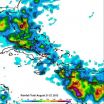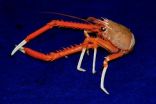(Press-News.org) DETROIT – Antioxidants, dietary supplements and high-tech brain imaging are among some of the novel strategies that may help detect, treat and even prevent noise-induced hearing loss and tinnitus among American troops, according to researchers at Henry Ford Hospital.
A culmination of nearly 25 years of research on noise-induced hearing loss – a growing medical issue that affects more than 12 percent of American troops returning from conflicts around the globe – will be presented Sept. 9 at the American Academy of Otolaryngology-Head & Neck Surgery annual meeting in Washington, D.C.
Led by Michael Seidman, M.D., the research team is the first to identify how acoustic trauma from machinery and explosive devices damages the inner ear cells and breaks down cell growth, much like age-related hearing loss.
"Improvised explosive devices, aircraft and other weaponry being used by the military are frankly deafening our troops," says Dr. Seidman, director of the Division of Otologic/Neurotologic Surgery in the Department of Otolaryngology-Head & Neck Surgery at Henry Ford Hospital.
"Noise-induced hearing loss doesn't just impact a person's ability to hear; it can cause balance issues, make it difficult to sleep and communicate, and even raise the risk for heart disease by increasing a person's blood pressure, lipids and blood sugar."
As part of his presentation, Dr. Seidman will explain how noise-induced hearing loss, as well as tinnitus-related traumatic brain injury, occurs based on research from Wayne State University's Jinsheng Zhang, Ph.D.
Dr. Zhang has developed a model of blast-induced tinnitus and hearing loss using a shock tube that generates a 194 decibel shock wave similar to many of the explosive devices being deployed against troops.
Further, Dr. Seidman will discuss the use of nutraceuticals, such as acetyl-l-carnitine, alpha lipoic acid and resveratrol – a substance found in red wine and red grapes – to mitigate hearing-related issues.
Based on initial results, Dr. Seidman says a nutraceutical with a resveratrol-based component may possibly hold the potential to not only prevent, but reverse hearing loss in certain circumstances for soldiers. This research is based on animal models, but will soon be tested with humans, to see if a pill could soon be developed to prevent acoustic trauma in troops.
In addition, Dr. Seidman will highlight new research on tinnitus, a chronic ringing of the head or ears that affects more than 50 million patients.
A study co-authored by Susan Bowyer, Ph.D., senior bioscientific researcher at Henry Ford Hospital, found that an imaging technique called magnetoencephalography (MEG) can determine the site of perception of tinnitus in the brain, which could in turn allow physicians to target the area with electrical or chemical therapies to lessen symptoms.
Although is no cure for tinnitus, several interventions are available, including dietary modification, the use of specific herbs and supplements, sound therapies, centrally acting medications and electrical stimulation of the cochlea and brain using implantable electrodes and an implantable pulse generator.
To date, Dr. Seidman has treated six patients with direct electrical stimulation to the brain, reducing the tinnitus in four of those patients.
In all, the team's work on noise-induced hearing loss and tinnitus has led to more than 50 peer-reviewed publications and several patents.
According to Dr. Seidman, more research and funding are needed in order to generate critical data to facilitate an understanding of the damage caused by acoustic trauma and develop strategies to mitigate that damage.
INFORMATION:
Report: Strategies to prevent noise-induced hearing loss, tinnitus in soldiers
2012-09-06
ELSE PRESS RELEASES FROM THIS DATE:
Transformation of health system needed to improve care and reduce costs
2012-09-06
WASHINGTON — America's health care system has become too complex and costly to continue business as usual, says a new report from the Institute of Medicine. Inefficiencies, an overwhelming amount of data, and other economic and quality barriers hinder progress in improving health and threaten the nation's economic stability and global competitiveness, the report says. However, the knowledge and tools exist to put the health system on the right course to achieve continuous improvement and better quality care at lower cost, added the committee that wrote the report.
The ...
Predicting how patients respond to therapy
2012-09-06
CAMBRIDGE, MA -- A new study led by MIT neuroscientists has found that brain scans of patients with social anxiety disorder can help predict whether they will benefit from cognitive behavioral therapy.
Social anxiety is usually treated with either cognitive behavioral therapy or medications. However, it is currently impossible to predict which treatment will work best for a particular patient. The team of researchers from MIT, Boston University (BU) and Massachusetts General Hospital (MGH) found that the effectiveness of therapy could be predicted by measuring patients' ...
'I knew it all along…didn't I?' – Understanding hindsight bias
2012-09-06
The fourth-quarter comeback to win the game. The tumor that appeared on a second scan. The guy in accounting who was secretly embezzling company funds. The situation may be different each time, but we hear ourselves say it over and over again: "I knew it all along."
The problem is that too often we actually didn't know it all along, we only feel as though we did. The phenomenon, which researchers refer to as "hindsight bias," is one of the most widely studied decision traps and has been documented in various domains, including medical diagnoses, accounting and auditing ...
NASA satellite captured Hurricane Leslie's picture perfect moment
2012-09-06
NASA's Aqua satellite flew over Tropical Storm Leslie on Sept. 5 during a picture perfect moment, just as it was being re-classified as a hurricane, and captured two images of the storm.
The National Hurricane Center issued the advisory confirming Leslie's hurricane status at 1:45 p.m. EDT after examining visible, infrared, microwave and other data from satellites. Two instruments that fly aboard NASA's Aqua satellite provided infrared and visible imagery of Leslie as it was crossing the threshold from tropical storm to hurricane status on Sept. 5.
The Moderate Resolution ...
More grandparents fill caregiver role
2012-09-06
Grandparents, an increasingly important source of child care in the United States, vary greatly in the kind of care they provide, depending on their age, resources, and the needs of their children, research at the University of Chicago shows.
A new UChicago study, based on a National Institute on Aging survey, shows that 60 percent of grandparents provided some care for their grandchildren during a 10-year period, and 70 percent of those who did provided care for two years or more.
The results mirror recent U.S. Census data showing the importance of grandparents in ...
NASA analyzes Isaac's rainfall: Drought relief and flooding
2012-09-06
As it passed through the northern Caribbean, around south Florida, and into Louisiana and the Middle Mississippi Valley, Hurricane Isaac brought lots of rain, some of it beneficial, and some of it not. Using data from the TRMM satellite, NASA created images of rainfall totals generated along Hurricane Isaac's path.
In addition to capturing detailed images of tropical storms, the Tropical Rainfall Measuring Mission (TRMM) satellite is ideally suited to measure rainfall from space. TRMM is managed by NASA and the Japanese Space Agency, JAXA. For increased coverage, TRMM ...
Mining the blogosphere
2012-09-06
Montreal, September 6, 2012 – Can a computer "read" an online blog and understand it? Several Concordia computer scientists are helping to get closer to that goal.
Leila Kosseim, associate professor in Concordia's Faculty of Engineering and Computer Science, and a recently-graduated doctoral student, Shamima Mithun, have developed a system called BlogSum that has potentially vast applications. It allows an organization to pose a question and then find out how a large number of people talking online would respond. The system is capable of gauging things like consumer preferences ...
In Rochester, a tale of tainted tattoos
2012-09-06
If you end up with a rash on a new tattoo, you should probably think twice before brushing it off as an allergic reaction or a normal part of the healing process.
A recent study in the New England Journal of Medicine documents 19 cases in the Rochester, N.Y., area – the largest ever reported – of tattoos infected with a type of bacteria often found in tap water. Evidence points to a premixed gray ink, the type used in currently popular portrait or photography tattoos, as the culprit.
Mary Gail Mercurio, M.D., a dermatologist at the University of Rochester Medical ...
Deep-sea crabs seek food using ultraviolet vision
2012-09-06
HOLLYWOOD Fla. — Some deep-sea crabs have eyes sensitive to ultraviolet light, which they may use to snatch glowing plankton and stuff it in their mouths, a new Nova Southeastern University study suggests.
Tamara Frank, Ph.D., a marine biologist and associate professor at Nova Southeastern University's Oceanographic Center, who is the principal investigator of the study, said that crabs living the deep-sea zone --- a pitch dark area at the ocean bottom ---- may be using bioluminescence to help sort out their food.
Duke University marine biologist Sönke Johnsen. Ph.D., ...
CNIO participates in the ENCODE project: A stride forward in biomedical research
2012-09-06
The international Encode project, a collaborative study bringing together hundred of scientists from all round the world, including researchers working at the Spanish National Cancer Research Centre (CNIO), published results yesterday mapping the control and regulation of genome activity. These results indicate a total of four million 'switches' controlling the gene activity of 147 types of human cells and tissue. This map provides us with the first comprehensive vision of the genome as a complex web of interactions, and goes far beyond our initial thinking, which assigned ...



